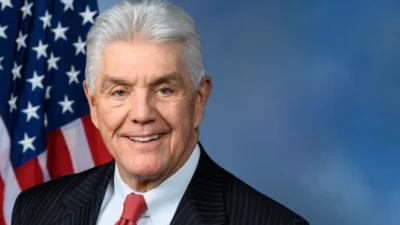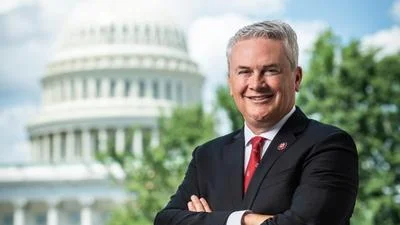Dear Secretary Paulson and Chairman Bernanke:
In the week before the Economic Stabilization Act passed the Senate, I heard from many constituents who did not like this legislation. Many were angry that taxpayers are being asked to clean up a mess with little, if any, consequences for those who created the mess. They did not want to throw good money after bad with a $700 billion bill that does not fix the laws and regulations that let the housing and financial sectors get so out of control.
I am now hearing from them again. The American International Group, Inc. (“AIG") has received over $120 billion in taxpayer dollars in the form of loans - one for $85 billion on Sept. 16,
2008 and another just yesterday for another $37.8 billion. Given that AIG is operating with taxpayer money, it is revolting to learn of their fast and loose use of this money for unconscionable compensation payments and corporate retreats.
Chairman Henry Waxman’s good work revealed that Mr. Martin Sullivan, Chief Executive Officer of AIG from 2005 through May of this year, received a $5 million performance bonus for 2007.
AIG’s Financial Products division sustained a $5 billion loss for 2007 which eventually lead to the demise of the whole company. It is abhorrent that Mr. Sullivan was rewarded for this loss,
especially since it seems AIG’s own guidelines would have prohibited such a payment. It is equally repulsive that Mr. Sullivan negotiated a $15 million golden parachute payment earlier this year when it was clear that AIG was experiencing financial difficulty.
Mr. Sullivan’s response that his bonus was justified because of the great performance of the other divisions is similar to AIG’s response that its St. Regis Resort boondoggle was for high performers in a division unrelated to the failed Financial Products division. These responses are offensive. AIG should be putting all of its assets on the line - particularly those from its profitable divisions - before utilizing taxpayer dollars to save its non-profitable divisions. While Mr. Sullivan’s $20 million and the $440,000 tab for the retreat are drops in a bucket of $122.7 billion, it still frees up that much taxpayer money. Every penny counts. The Treasury and the Federal Reserve should ask Mr.
Sullivan to pay back the full amount of his bonus and those participating in the St. Regis retreat to reimburse AIG for their portion of the expenses.
Similarly, the $1 million monthly retainer to Mr. Joseph Cassano must be stopped immediately. It is not clear what useful expertise he can provide when it appears that he shared major responsibility for the failure of AIG’s Financial Products division.
In discussing the Troubled Asset Relief Program (“TARP") provisions of the Stabilization Act with my colleagues, I stressed the importance of reining in executive compensation while participants in the TARP are subsidized with taxpayer dollars. Despite assertions to the contrary, the executive compensation provisions in H.R. 1424 are turning out to be window dressing rather than a legitimate attempt to prevent golden parachutes and multi-million dollar paychecks for failed leadership. I understand that you felt that TARP would fail if the executive compensation provisions were any tighter. I would like to understand your rationale for this conclusion given that AIG’s actions prove that no one is minding the store for overall expenses, never mind compensation. Another concern is that your circle of advisors appears to be recruited from Wall Street firms that may have a vested interest in the success of the program.
Please describe, in detail, why you believe that additional limits on executive compensation would have caused TARP to fail. Please also describe, in detail, how you will ensure that all companies rescued with taxpayer dollars will tighten their belts just like thousands of taxpayers are doing during this economic crisis. This includes the participants in TARP as well as AIG, Fannie Mae,
Freddie Mac, and the auto companies.
Section 162 of the Internal Revenue Code allows taxpayers to deduct “ordinary and necessary"
business expenses in arriving at their tax liability. While I expect many of these rescued companies to report tax losses for many years to come, I suggest that these losses be limited by restricting the definition of “ordinary and necessary" expenses for these companies. Specifically, I recommend that travel and other reimbursable expenses be subject to federal government limits for these expenses. Taxpayers who are struggling to stay in their homes should not be subsidizing first class travel or luxury hotel stays for any employee of a company that is being rescued with taxpayer money. Given the extraordinary regulatory authority Treasury has just exerted under section 382 for commercial banks, Treasury surely has the regulatory authority to impose such restrictions here.
Please explain if you disagree.
Finally, please describe what policies and procedures you have implemented to ensure the independence of your advisors and to prevent any current or future conflicts of interest.
I appreciate a quick response to the above. If you have any questions, please do not hesitate to contact Theresa Pattara of my staff at (202) 224-4515.
Sincerely,
Chuck Grassley Ranking Member
cc: Mr. James B. Lockhart, III, Director, Federal Housing Finance Agency The Honorable Samuel W. Bodman, Secretary of Energy
-30-









